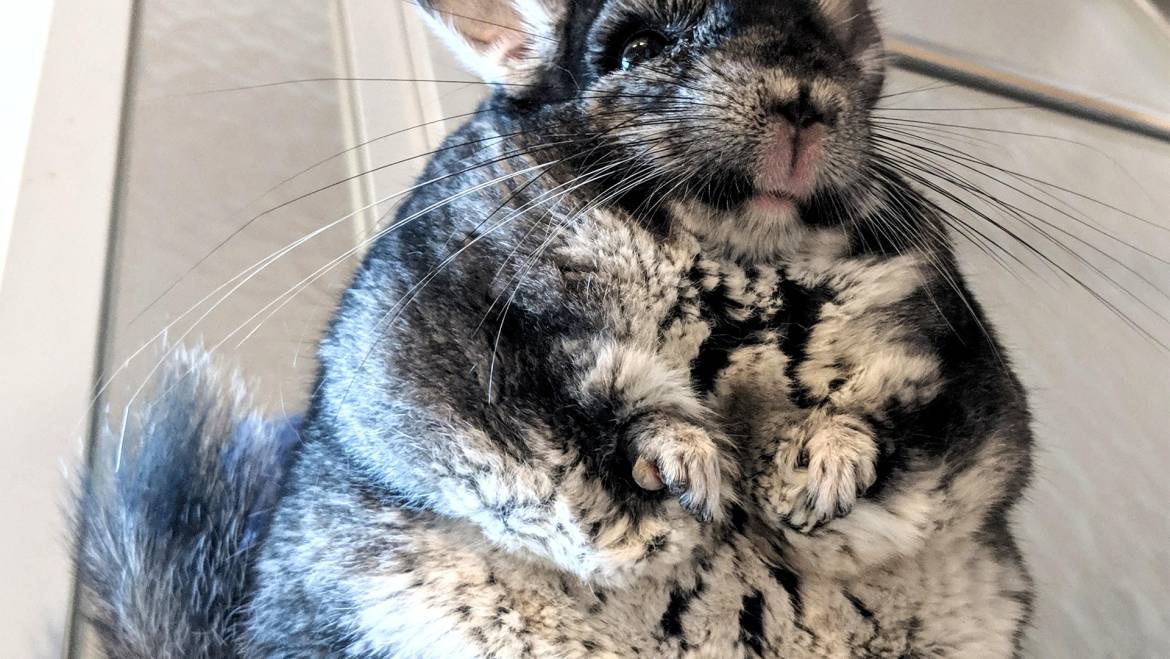Chinchillas are adorable and active pets that are gaining popularity worldwide. They are friendly, sociable, and have unique personalities. Chinchillas require proper care, including a balanced diet, clean environment, and regular exercise. Unfortunately, obesity in chinchillas is becoming more common, causing significant health problems for these small animals. In this article, we will discuss the causes, symptoms, and cures of obesity in chinchillas, as well as how to prevent this condition from occurring.
What is Obesity in Chinchillas?
Obesity is an excessive accumulation of body fat that results in a negative impact on health. In chinchillas, obesity is defined as an excessive body weight that exceeds the average range for their age and gender. Obesity is not just a cosmetic issue; it can cause severe health problems that may affect the lifespan of your chinchilla.
Causes of Obesity in Chinchillas
Obesity in chinchillas can occur due to various reasons, including:
- Overfeeding: Giving your chinchilla too many treats or an excessive amount of high-calorie food can lead to obesity.
- Lack of Exercise: Chinchillas are active animals that require regular exercise to maintain a healthy weight. A sedentary lifestyle can lead to weight gain.
- Genetics: Some chinchillas may have a genetic predisposition to gain weight easily.
- Medical Conditions: Certain medical conditions, such as hypothyroidism, can cause weight gain in chinchillas.
Symptoms of Obesity in Chinchillas
It’s essential to recognize the signs of obesity in chinchillas to prevent health problems. The following are common symptoms of obesity in chinchillas:
- Excessive Weight Gain: If your chinchilla is overweight or obese, you may notice a visible increase in their body size.
- Reduced Activity Level: Obese chinchillas may become less active and show a lack of interest in play and exercise.
- Difficulty Moving: An overweight chinchilla may experience difficulty moving around their cage, climbing on toys, or running on their wheel.
- Shortness of Breath: Obese chinchillas may have trouble breathing due to the increased pressure on their lungs and heart.
- Poor Grooming: Overweight chinchillas may have difficulty grooming themselves, which can lead to matted or dirty fur.
Cures for Chinchilla Obesity
If your chinchilla is overweight or obese, it’s essential to take action to prevent further health problems. Here are some cures for obesity in chinchillas:
- Balanced Diet: Feed your chinchilla a balanced diet that is high in fiber and low in fat. Avoid giving too many treats or high-calorie food.
- Exercise: Encourage your chinchilla to exercise by providing toys, climbing structures, and a running wheel. Allow your chinchilla to play outside of their cage if possible.
- Weight Management: Monitor your chinchilla’s weight regularly and adjust their diet and exercise routine as needed to maintain a healthy weight.
- Medical Treatment: If your chinchilla’s obesity is caused by an underlying medical condition, such as hypothyroidism, your veterinarian may prescribe medication to manage the condition.
Preventing Chinchilla Obesity
Prevention is the best approach to avoid obesity in chinchillas. Here are some prevention tips:
- Balanced Diet: Feed your chinchilla a balanced diet that includes hay, pellets, and fresh vegetables. Limit treats and high-calorie foods.
- Portion Control: Measure your chinchilla’s food to prevent overfeeding.
- Exercise: Provide toys, climbing structures, and a running wheel to encourage exercise. Allow your chinchilla to play outside of their cage if possible.
- Regular Check-Ups: Schedule regular check-ups with your veterinarian to monitor your chinchilla’s health and weight.
Obesity in chinchillas can lead to severe health problems and reduce their lifespan. It’s essential to recognize the signs of obesity and take steps to prevent and treat this condition. Providing your chinchilla with a balanced diet, regular exercise, and appropriate veterinary care can help maintain their health and well-being. By following the guidelines in this article, you can ensure that your chinchilla lives a long and healthy life.







